15 New Startups Join the Swedish AI Startup Landscape
This latest version of the initiative led by AI Sweden and Ignite Sweden now features 198 AI startups.
October 12, 2022Three German corporates took the chance to explore the Swedish innovation ecosystem with Ignite’s Discovery Tour in Stockholm, Gothenburg and Malmö.
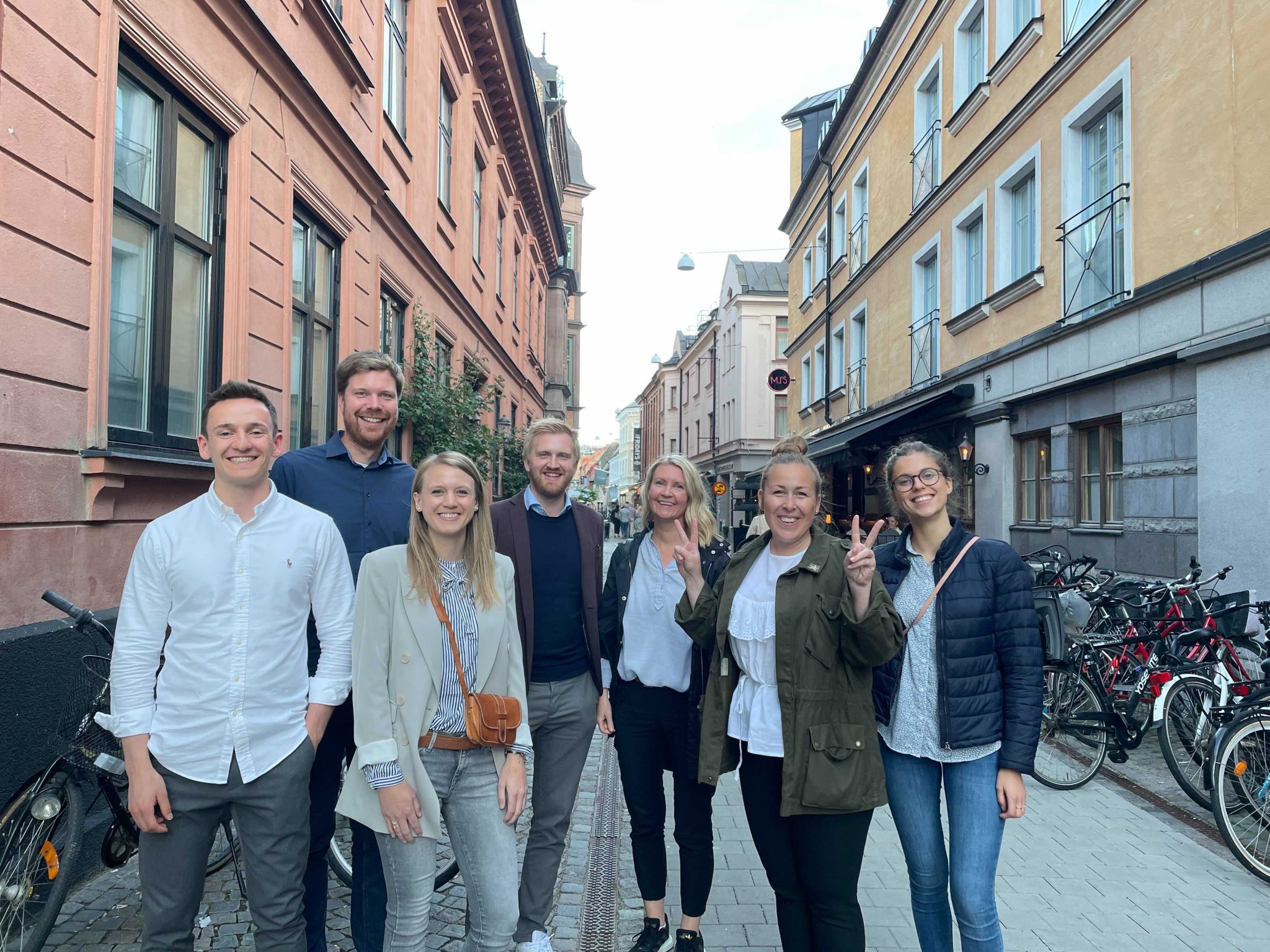
Exploring the diverse offerings of Sweden’s three biggest cities, the corporates not only met with startups, but joined networking events and spoke with local research institutes, academics and other innovation organizations.
Across four days, representatives from the German Venture Client initiative STRATOSFARE, including Miele, WAGO, Dr. Oetker and Fraunhofer IEM, participated in a wide range of activities.
Find out more about why they were interested in Sweden and which ideas they would like to see implemented in their own innovation ecosystem.
Despite its relatively small size compared to Germany, the participating corporations see Sweden as an important market for their global business strategies, in terms of digital, material and sustainable innovation.
“It was just a great opportunity to talk to them in person instead of just doing it virtually. In every country you’ll find a different focus and it is really exciting to get to know the Swedish startup ecosystem and learn more about the Startups solutions in the meetings,” says Marie Bierbüsse, Digital Transformation Manager, WAGO.
Her colleague Tobias Lehmann (Digital Transformation Manager) adds “at WAGO we have a global approach to startups and that’s why we want to get to know the northern parts of Europe. We want to get to know the startups personally as well as the ecosystem in detail here.”
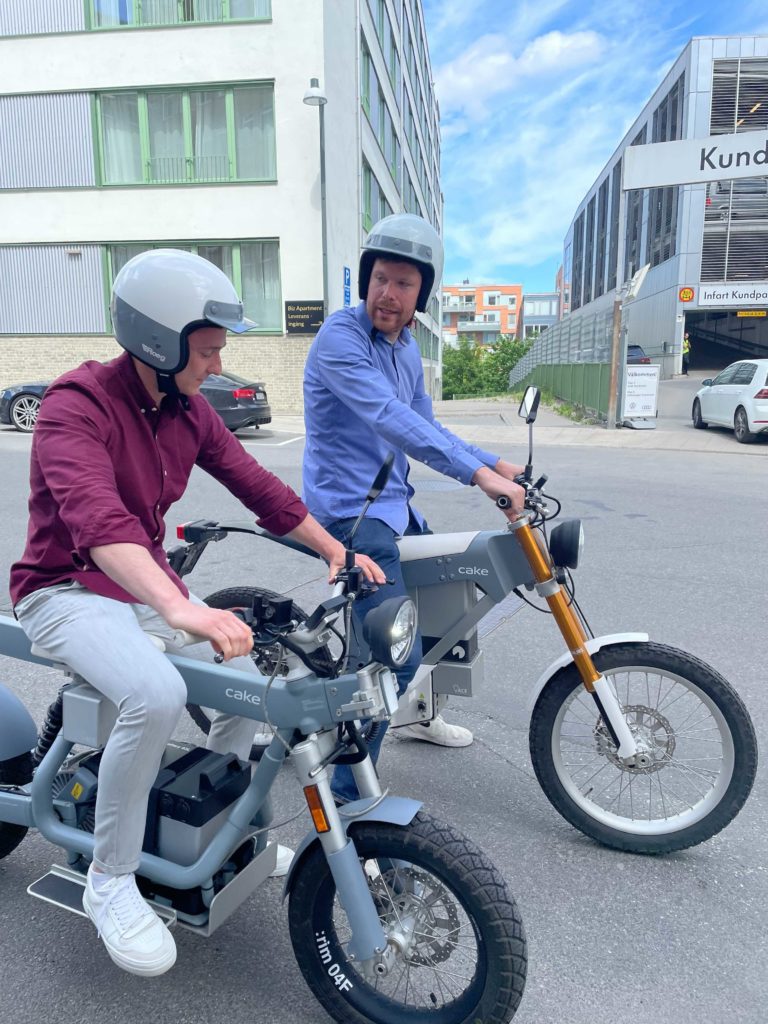
Miele also felt that coming in person gave them a more holistic picture of Sweden’s innovation ecosystem.
Senior Technology Manager, Daniel Kinder shares that “You get to know the people so well, not only the startups, but also the surroundings. It gives us a deeper understanding of how it works in Sweden. What are the benefits and how the system works. We had also heard that Sweden and Scandinavia are more digital and now we could really experience that.”
His colleague Rebecca Hanke (Technology Scout) adds that “a lot of material and sustainable innovation is here (in Sweden) and that’s very good for us because sustainability is also a very large part of our strategy.
The matchmaking sessions in each of the three cities made up a core piece of the tour and corporates had a chance to meet a diverse range of local startups with sustainable, digital and material solutions.
According to Dr Oetker’s Senior Technology Engineer Industry 4.0 / Operational Excellence, Julian Hentze, all of the meetings were really professional, friendly and worthwhile.
“Everyone was very open. I tried to always take the same structure and get to know about the startups, their situation and the development and also their unique selling points. The meetings were very positive and we can connect with the startups and will see how we proceed.”
For Miele it was important to meet with a range of startups within different sectors and have a conversation about how they could fit into the company’s strategy.
“We met materials startups, software startups, smart home startups, so it was very diverse,” says Rebecca.
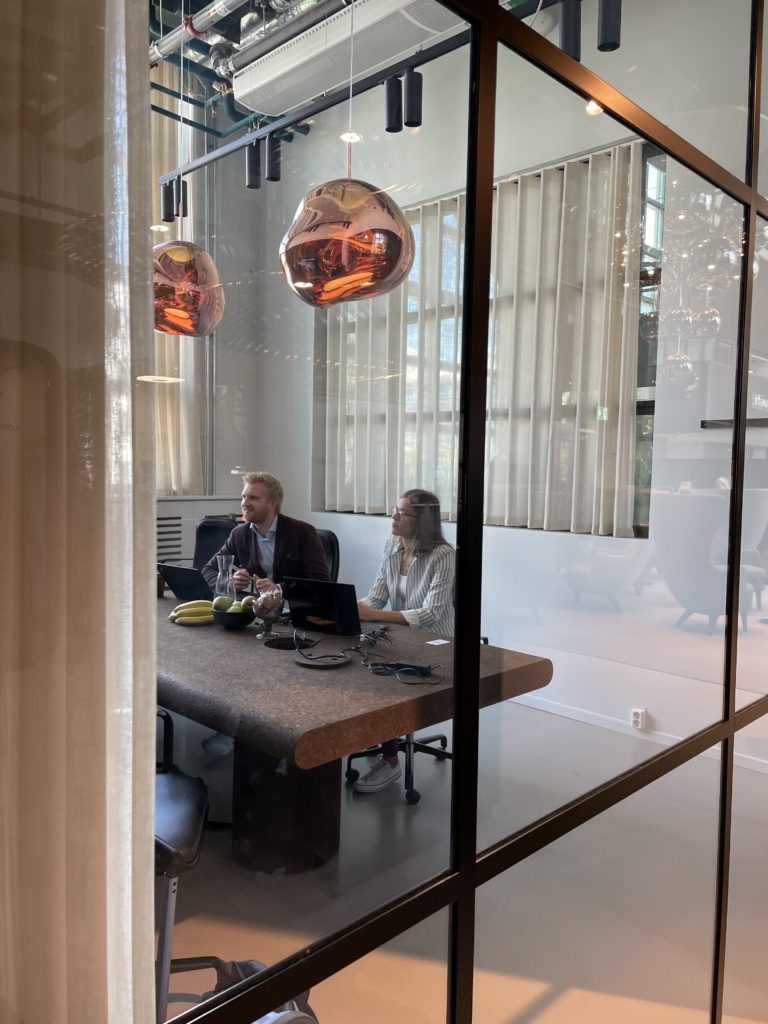
“The startups were mature so we can really start directly with them. Once we have all the connections internally, then I think there will be some really nice projects coming up over the next months,” adds Daniel.
Even meeting startups that may not be able to begin a collaboration directly can be valuable for the future according to Rebecca.
“It’s also possible that we don’t currently have enough resources to make a project, but we have you in mind. Maybe (then we can say) let’s connect again next year or in six months. So it’s also about the network that we built up.”
She adds that the other advantage of in-person matchmaking was the ability to have impromptu meetings “sometimes we didn’t have a scheduled meeting with a startup but they (one of the other corporates) says, ‘hey, maybe this is also interesting for you,’ and that’s really what we want to achieve with being here.”
Beyond the matchmaking there was also the opportunity to explore other aspects of the Swedish innovation ecosystem with events at both KTH in Stockholm and Minc in Malmö that allowed the participants to meet with academics, incubators and other innovation actors. For Fraunhofer IEM, it was important to connect with various actors to develop future relationships.
“We’re really excited to come to Sweden, not only to bring corporates from the Stratosfare Initiative together with the Swedish startups, but also to get connected to the research landscape in Sweden, like RISE, which is really similar to Fraunhofer, and KTH in Stockholm, as they also focus on startup collaborations and how to enable companies to profit strategically for startups,” says Lennard Haarmann, Project Manager at Fraunhofer IEM.
A visit to sustainable bike company CAKE in Stockholm was also a highlight and was something that Daniel felt would not have been as impactful in a digital forum.
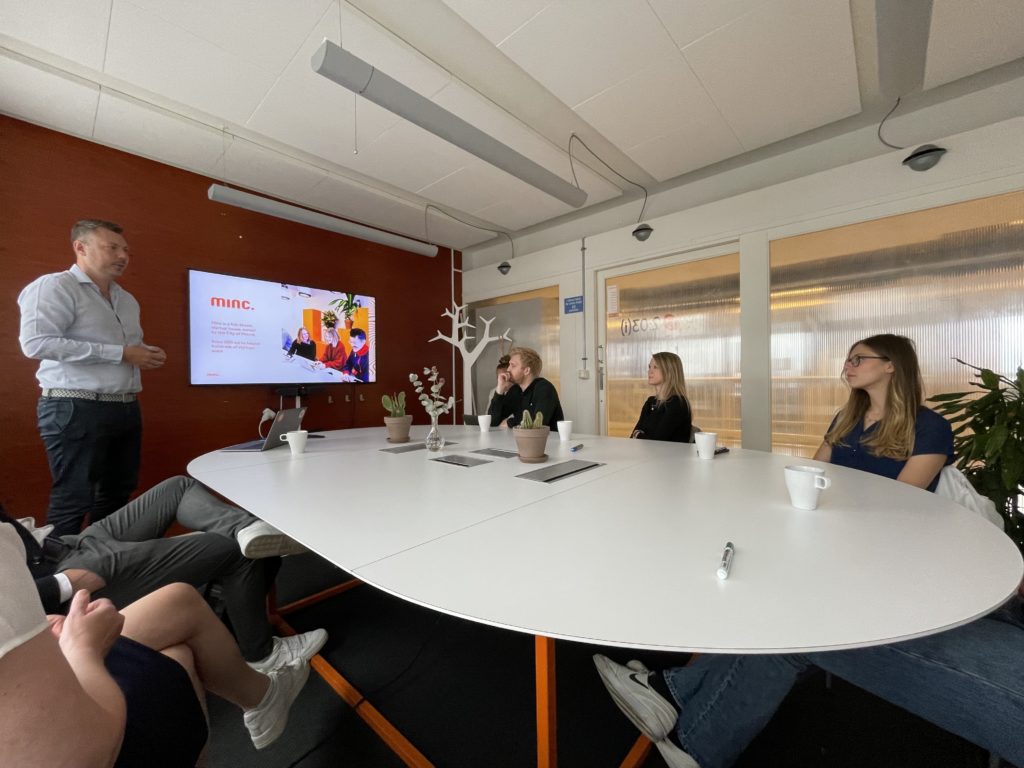
“It was really great to also see the products, and feel the different wood components. You can smell it, that it’s not plastic, but really smells like wood. And that’s something you can’t translate in a digital format.”
Travelling to more than one city was also extremely beneficial for getting a better understanding of how innovation works across the country and the various specializations of each area.
“There are so many highlights on this tour. The startups we got to know, the events we could attend and of course the different cities. We saw a little of Stockholm, Gothenburg and Malmö, and it was very impressive to see the difference and get to know the people there and get a deep dive into the ecosystem,” says Tobias from Wago.
After spending four days in Sweden, one of the key themes coming from all of the participants was the need for more collaborative spirit in Germany as well as more overarching opportunities to connect with each other at a national level.
“What we should learn in Germany is to have an organization which really connects different areas, locations and topics. I like the way of cooperation in Sweden, because I think it’s worthwhile to cooperate with a wide range of partners. We have to learn that it’s not necessary that everybody does his own thing and reinvent the world many times. It is important to learn from each other and cooperate to get good results,” says Julian.
Acknowledging the challenges, Lennard would also like to see more access to the German innovation ecosystem.
“We have a really heterogeneous landscape of startup initiatives like incubators, accelerators all over the country. We need something like lgnite in Germany, an organization which bundles all these activities and makes it easier for external partners like corporates to access the German startup ecosystem,” he says.
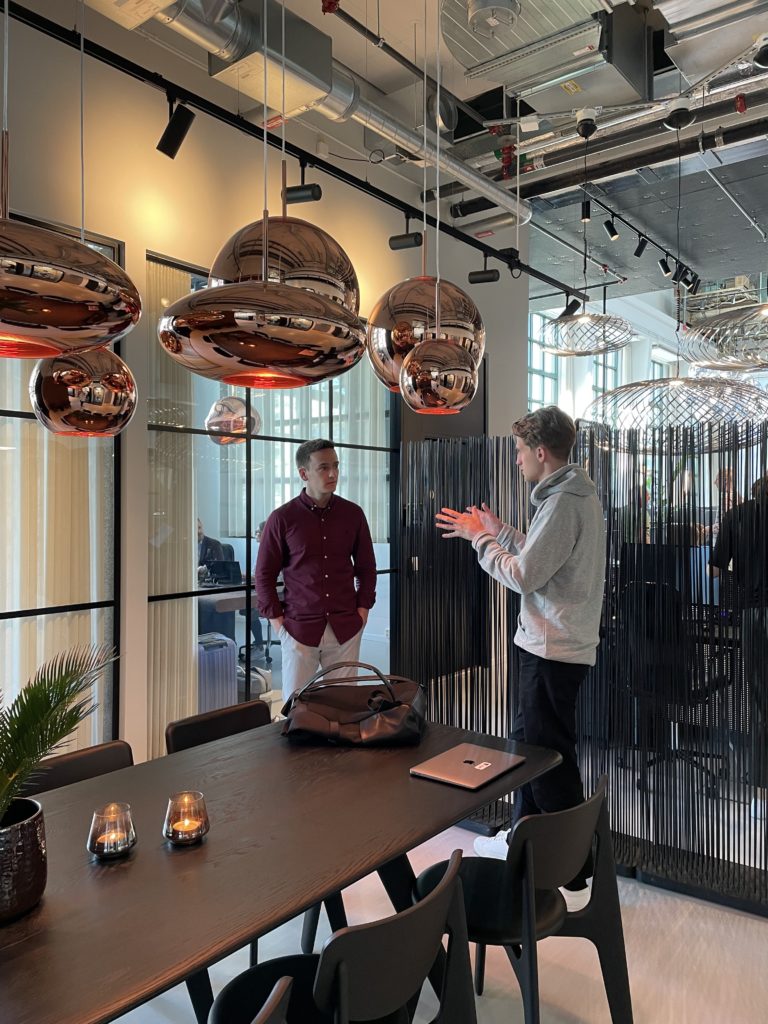
Overall everyone was able to gain a lot of insights into the Swedish system and begin to create some ongoing connections for the future.
“We have been able to ask so many questions and get more insights into the Swedish ecosystem. So, we are going back to Germany with a lot of impressions from the ecosystem, from the startups and also from Ignite Sweden. It was a great tour and I would definitely do it a second time,” says Marie.
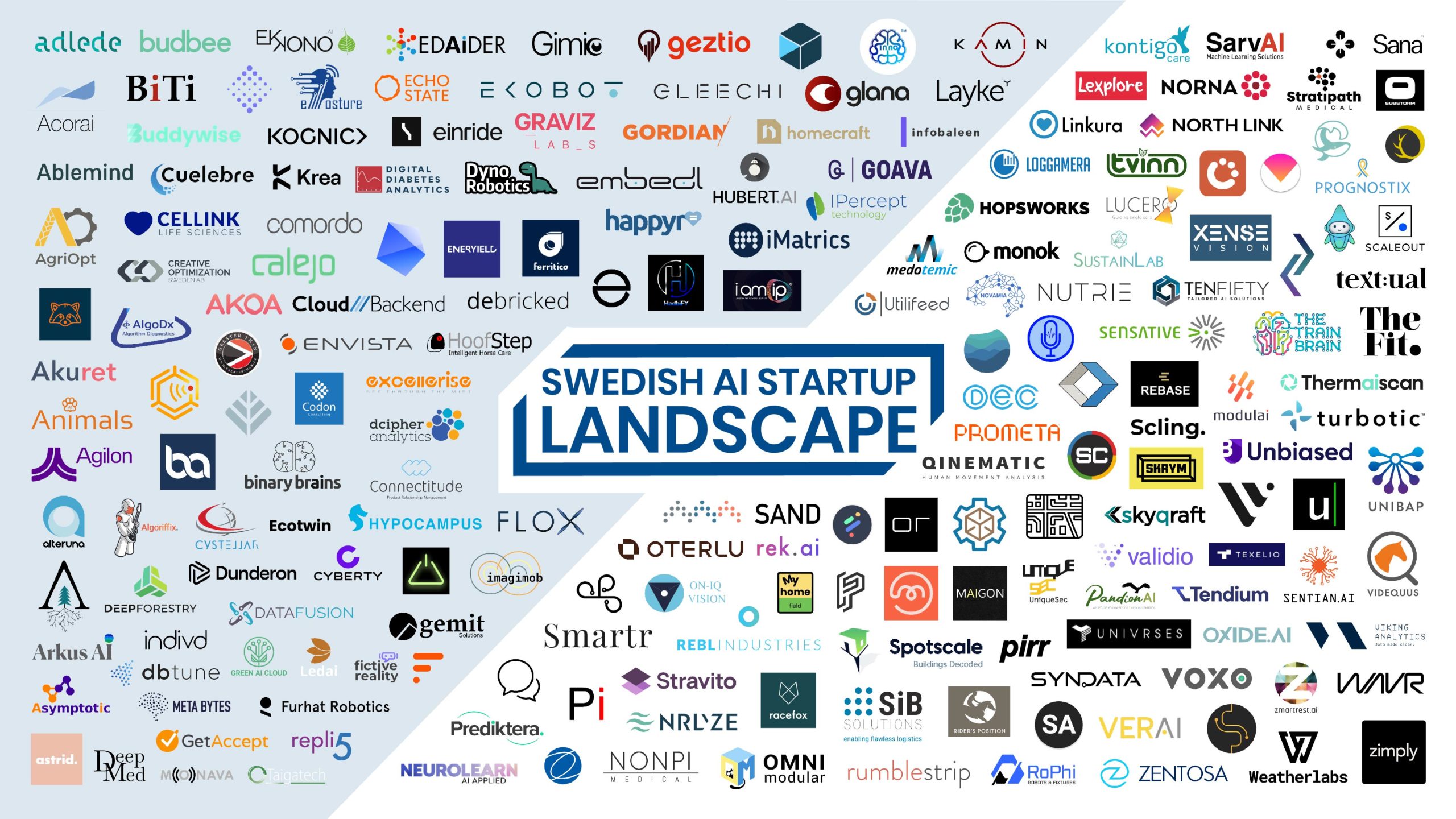
This latest version of the initiative led by AI Sweden and Ignite Sweden now features 198 AI startups.
October 12, 2022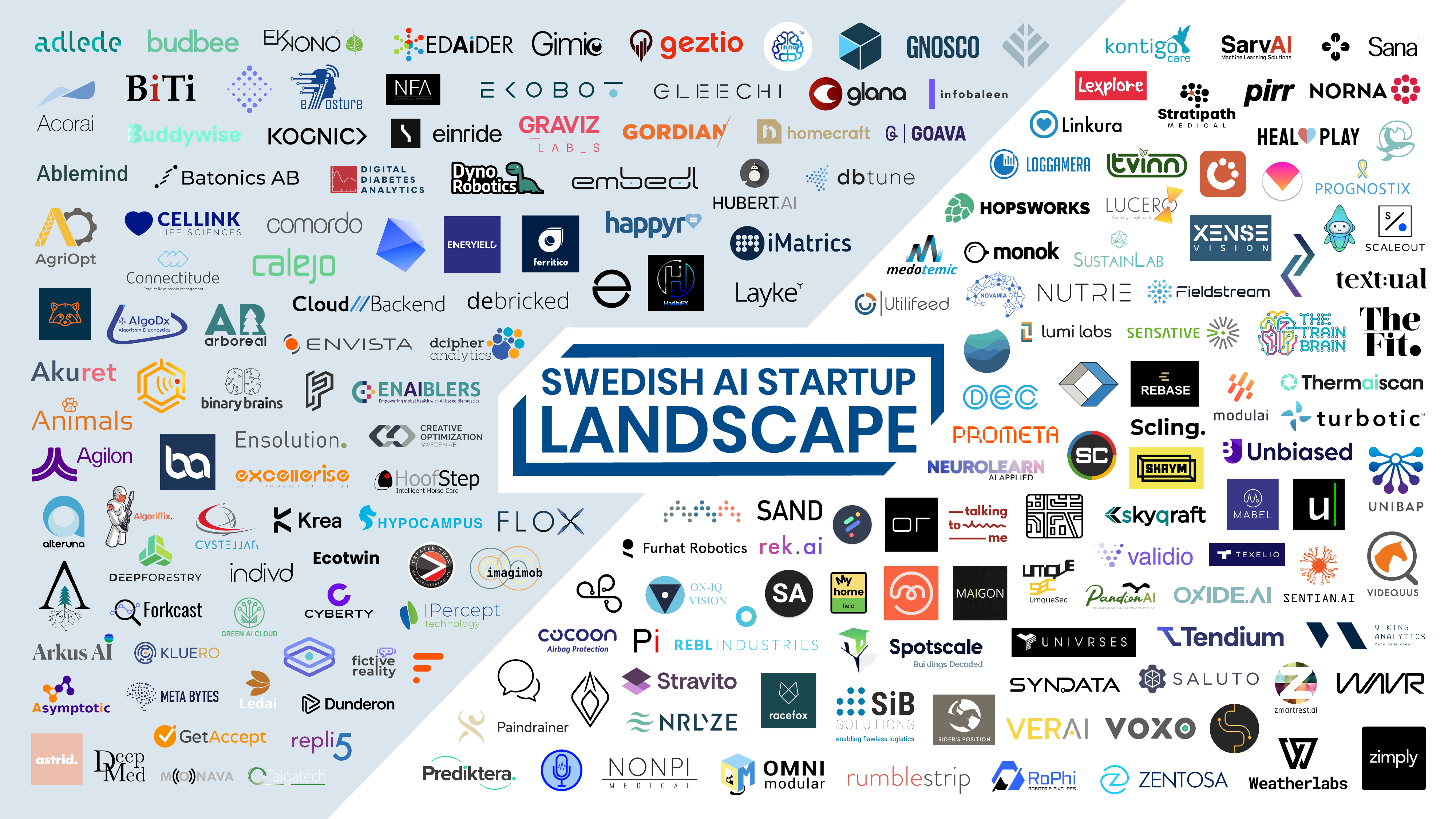
The latest update of initiative led by AI Sweden and Ignite Sweden showcases a total of 197 AI companies from across the country.
May 31, 2023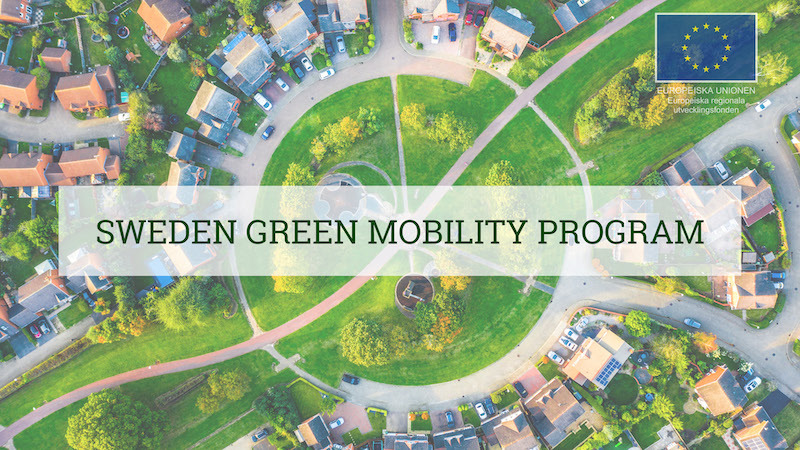
The participating startups and SMEs will help the city of Borlänge reduce the climate impact of commuting.
April 3, 2023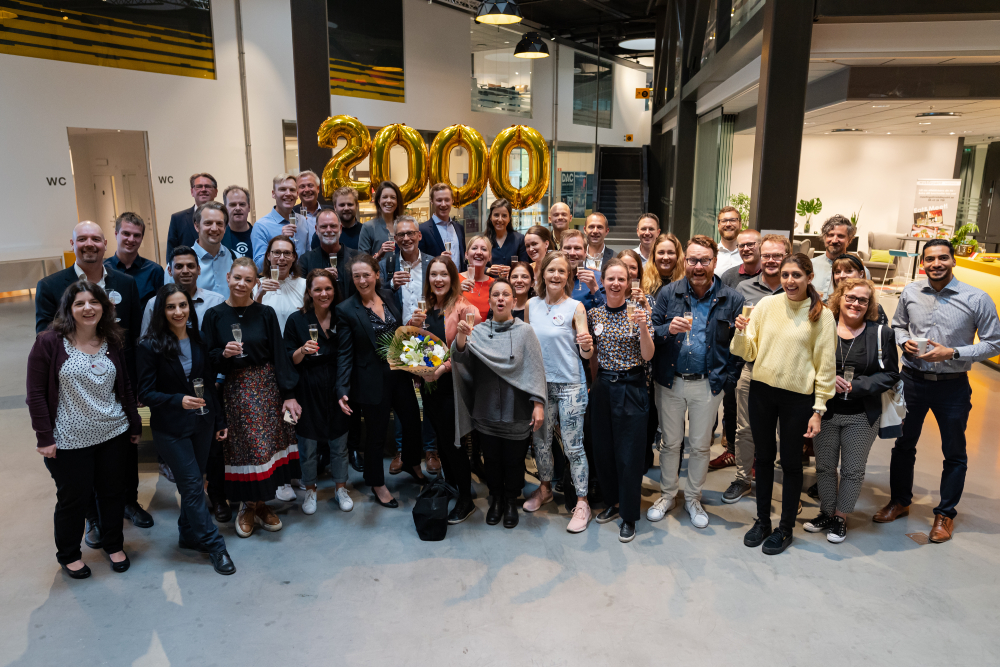
Ignite Sweden surpassed the milestone of 2000 tailored matchmaking meetings involving a total of 98 corporates and 342 startups since the program started in 2017.
July 1, 2019| Cookies that we use |
|---|
| close-cookie-bar |
| wants-ec-cookies |
| wants-fc-cookies |
| wants-mc-cookies |
| wants-ac-cookies |
| Cookies that we use |
|---|
| Cookies that we use |
|---|
| _gid |
| _ga |
| _ga_G3QPMYQ0S9 |
| Cookies that we use |
|---|
Sign in to our digital platform Ignite Magic to join our program, check out our upcoming matchdays, update your company profile, and access useful resources such as legal templates and other material to help you prepare for your meetings.
Click the boxes below to learn more about our offerings and how to get started.